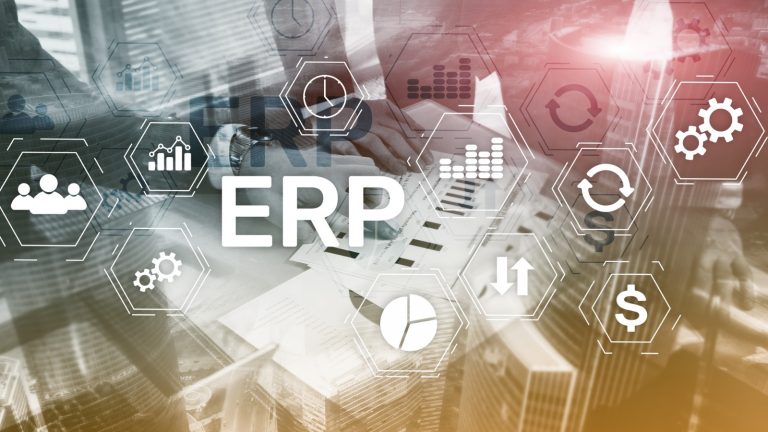In this dynamic business context, it is highly tough to enter the market. It is rather difficult to survive through the thick competition among the companies. This is one of the heaviest weights placed on small businesses in Singapore. As this country is all about innovation and development, there are an unlimited number of small businesses entering the business scenario day after day. This is why startups have to implement the right strategies at the right time. When talking about innovative strategies, ‘Enterprise Resource Planning systems’ or ERP systems take the lead, undoubtedly considering all the benefits they offer.
Are ERP systems good for small businesses in Singapore? What can it do for the growth of startups? Come, let us explain everything about this in our blog article.
We will explore
What are ERP Systems?

- Before opting for any technology or strategy, you must thoroughly understand the real mechanism hidden behind it. This is not exceptional for the ERP system as well.
- ERP systems are comprehensive software solutions designed to integrate and streamline various business processes within an organisation. While this software can stand alone, it can also be easily integrated with other software.
- In the sense of processes, it includes everything that comes under the operational and administrative framework of an organisation. This ranges from accounting, human resources, inventory management, supply chain management, customer relationship management (CRM), and more. The best thing about ERP systems is that they provide a centralised database and a unified platform that backs up data sharing and communication among different departments. There is no need to say that it encourages efficient coordination and collaboration across the entire company.
- On the other hand, ERP systems come with the capacity to make processes automated. This automation helps the management and its employees by simplifying repetitive tasks and providing real-time data insights. It clearly leads to better decision-making for the authorities. As another fact, ERP systems have the ability to optimise operations, reduce costs, and improve productivity, and these are directly impacting the ROI factors.
- It is evident that companies that opt for ERP solutions receive high levels of scalability benefits. With their customisation options and built-in analytics, ERP systems empower businesses to own a stable position in the rapidly changing market in Singapore, for sure.
Why are ERP Systems Good for Small Business in Singapore?

Cost Savings and Maximise ROI
Costs for unwanted chores have become a worst nightmare for small businesses. It will impact the desired growth and the ROI at the end of the year. Implementing an ERP system offers significant cost savings and maximises ROI for small businesses in many ways. Let us elaborate on this a bit.
If you take one business, there are many aspects that you have to handle within its framework. In the traditional technological era, businesses had to purchase different systems for these different tasks. But with ERP in the scenario, this can be simplified.
How is that possible? Initially, ERP consolidates various software solutions into one integrated platform. On the one hand, it reduces licencing fees and maintenance costs associated with managing multiple systems. On the other hand, since ERP can automate processes and improve operational efficiency, it greatly reduces labour costs and minimises the need for manual intervention. As you can see, this benefit frees up resources for other strategic initiatives.
Furthermore, you no longer need several pieces of software for real-time data insights, analytics, and every other task because ERP can unify them under one canopy to facilitate better decision-making and help small businesses identify areas for cost optimisation and revenue growth.
With ERP systems, one entrance to every aspect!
Business Scalability
Business scalability is a compelling reason to advocate for ERP systems for small businesses, particularly in Singapore. We will discuss how.
As small businesses expand, ERP systems offer the flexibility to scale seamlessly. You know, when a business spans its territory, the data it generates gets expanded accordingly. However, accommodating rising data volumes, additional users, and growing business complexities will pose a huge challenge for small businesses in Singapore. However, the scalability capacity to bring all the data together ensures continuity and efficiency in operations.
It ensures that the company and the ERP system keep growing together through rich data.Whether it is an increase in transactions, customer base, or product lines, ERP systems provide the infrastructure to support growth without compromising performance or productivity.
It is unnecessary to say that the ability to scale allows small businesses to adapt to market changes and seize new opportunities promptly.
Centralised Inventory Management
By integrating inventory management functionalities into a single, centralised platform, ERP systems enable small businesses to efficiently monitor and control their entire inventory from one location.
This centralised approach eliminates the need for separate inventory management systems or manual spreadsheets, reducing the risk of errors and inconsistencies.
With real-time visibility into inventory levels, movements, and costs, small businesses can optimise stock levels, minimise carrying costs, and avoid stock outs or overstock situations. Additionally, centralised inventory management within an ERP system facilitates better coordination between different departments, such as sales, procurement, and production, ensuring smooth operations and improved customer satisfaction.
This centralised inventory management through ERP enhances efficiency, accuracy, and responsiveness. It also encourages your small business to effectively manage their inventory and drive business growth.
Streamlined Operational Workflow
Sometimes small businesses cannot cope with complex operational workflows if the production process is heavy. This is where the Singapore market needs ERP systems. It easily integrates diverse business processes such as accounting, inventory management, sales, and HR into one singular platform.
With ERP in use, there are fewer errors and inefficiencies when it comes to the production cycle and after chores. Every department of a small business becomes a framework.
With all data centralised and accessible in real-time, small businesses can efficiently coordinate activities, from order processing to fulfilment, payroll management to employee scheduling.
Another great benefit of ERP is that it can automate repetitive tasks and standardise processes. ERP enhances efficiency and reduces the risk of errors with this ability. Since the whole production-to-distribution mechanism is inside your palm, you will be offered a maximum level of visibility into each cycle.
One View from Production to the Supply Chain
This is exactly what we stated in the above section. Offering a comprehensive view from production to supply chain is a must-have ‘talked-about’ advantage of ERP systems for small businesses. These platforms integrate production data seamlessly with supply chain management, providing a unified perspective across the entire value chain.
If traceability is your problem, ERP solves it with its robust features. Did you know that from raw material procurement to manufacturing, distribution, and customer delivery, small businesses can track and manage every aspect of their operations within a single system? This singular view encourages better decision-making, as stakeholders have access to real-time information on inventory levels, production schedules, and delivery timelines.
This knowledge you receive on various aspects of the business ecosystem with a single eye makes you make wise decisions as you can foresee bottlenecks and roadblocks in advance.
With ERP systems in place, operational excellence and collaboration among various elements of the business can be perfected!
Magnified Productivity and Efficiency
These two factors determine the future of your small business in Singapore. That is because if your small company’s productivity and efficiency levels rest in a higher position, that indicates your workforce can do many chores within one day. But how does ERP help with these efforts?
ERP platforms can simply expedite operations by automating repetitive tasks across various departments and bringing everyone to one platform. Plus, your employees do not have to commit their time to do the same task again and again if you have ERP automation power.
Additionally, ERP systems provide real-time data insights and analytics, empowering management to identify the areas that need to be perfected and adjusted in order to achieve the best results in the end. Since this system carries a full-scale centralised database and standardised processes, communication and collaboration between different teams are enhanced. Communication is the first step towards boosting productivity in the business world.
As ERP can offer you robust workflow optimisation and capacity, as well as resource allocation ability according to the availability of each employee, time is saved too. It also ensures the deadlines are met and you deliver the expected outcome to the client.
With this level of efficiency, your small business will see new horizons soon.
The Fastest Growth for Singaporean Small Businesses via ERP Systems

Now you understand why ERP systems are good for small businesses in Singapore. From production to the supply chain, it becomes one venture if you have a robust ERP. The most important factor that a small business in Singapore has to be mindful of is selecting the best ERP system according to its business nature. If you collaborate with an industry expert, you can ask them to show you a demo before you make any purchasing decisions. This way, you can make sure that your small business steps away from the potential bigger problems.






